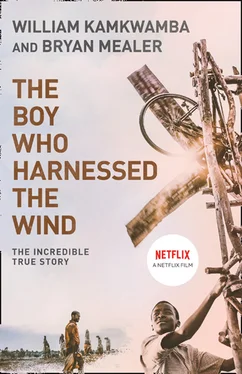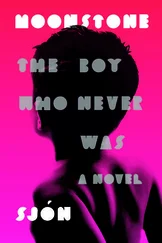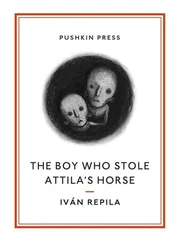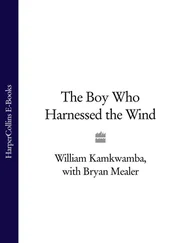“I don’t want anyone saying I’m a thief,” my father said. “If things go badly, I still did the right thing.”
Of course, when Jeremiah heard he was being handed a family fortune, he was very surprised. He’d just assumed his father’s brothers would never trust him.
“This is such a wonderful blessing,” he told my father. “Thank you very much.”
But as soon as Jeremiah took control, he spent most of the season’s profits in the bars of Lilongwe and Kasungu. In November, when it came time to buy seed and fertilizer to plant new maize and tobacco, plus hire a new crew of workers, little of the money was left. As a result, the next crop was smaller. And when the tobacco was sold at auction, Jeremiah took the money and disappeared, returning only after most of it was gone.
Uncle John had also owned and operated two maize mills in nearby villages that made a substantial profit. In addition, he owned eight head of cattle. The mills and cattle were also given to Jeremiah, but the following year, Musaiwale, the oldest brother, forcefully took one mill and half the cows. Within two years’ time, Jeremiah had lost both his maize mill and his cows.
As far as my father was concerned, his brother’s business was gone. In farming, a man can lose everything so quickly. Given our custom, my father was forbidden to take back what he’d given away. Once you surrender control, you lose it forever. After the business collapsed, our family was left to survive on its own.
FARMING HAD ALSO BECOME a tougher business in Malawi, thanks to the policies of a new president. In 1994, three years before Uncle John’s death, President Banda finally retired after losing the first elections he’d allowed to happen. Thirty years had been a long time in power, and the people were tired. Opposition against him had also grown ugly. Large crowds had gathered in the cities to protest his tyranny and harsh policies, and riots had erupted as a result. Before the election, Banda’s thugs had even attempted to scare people into voting for him again. One day in the trading center, more than three hundred Gule Wamkulu appeared on the road carrying empty coffins, promising to fill them with anyone who didn’t support the Life President.
But the opposition had still won, and unlike most African losers, Banda agreed to leave quietly and not start a war. He even accepted defeat before the final votes were tallied. He knew it was time. Since Banda had been born and raised in Kasungu, he returned to his home at the base of Mount Nguru ya Nawambe—formerly the Rock of the Edible Flies, where our great Chewa warriors had defeated the Ngoni—and lived out his final days. A big, fat former cabinet minister named Bakili Muluzi then became president, bringing with him his own brand of troubles.
Banda may have been a cruel dictator, but he did care deeply for farmers and the land. Our district is the most fertile in all Malawi, often called the “breadbasket” of the country, and Banda understood what was required to work the soil. He made sure that fertilizer was available to every farmer in the country who needed it. Seed was also cheap, allowing any Malawian to grow tobacco to sell. This meant that as long as it continued to rain, no family would go hungry.
On the other hand, Muluzi had been a wealthy businessman before entering politics and believed government had no business dealing in fertilizer and seed. He wanted to be different from Banda in every possible way, and this included stopping all subsidies and making the farmers fend for themselves. The free market allowed wealthy companies to flood the auction floors with mass-produced tobacco that drove the prices down and squeezed the small farmer. Soon, the value of our burley tobacco was so low that many farmers didn’t bother growing it. My family managed to plant a few small plots, in addition to our normal maize fields. But without the help of seasonal workers, it was up to me and my cousins to help keep our farm running.
THE YEAR AFTER UNCLE John died, my uncle Socrates lost his job as a welder at Kasungu Flue-Cured Tobacco Authority when the estate closed. He and his family were forced to leave their quarters there and move back to our village, to a large shed near our house.
Uncle Socrates had seven daughters, which was good news for my sisters, but to me, their arrival didn’t mean much one way or another. However, as we unloaded their things from the ten-ton lorry, I saw something leap from the truck bed.
Out of nowhere, a large dog appeared at my feet.
“Get away!” Socrates shouted, kicking the air above the dog’s head. It yelped once and scampered off. Once at a safe distance, it sat down and stared at me.
“That’s our dog, Khamba,” he said. “I figured we’d bring him along to watch the chickens and goats here. That’s what he did best at the estate. Maybe it’ll remind him of home. We’ll sure miss it there.”
Khamba was the most unusual thing I’d ever seen: all white with large black spots across his head and body, as if someone had splattered him with a pail of paint. His eyes were brown and his nose was peppered with bright pink blotches. He looked exotic, like something from another land. Plus, he was big—much taller than the dogs around our village, but certainly just as skinny. In Malawi, dogs are kept only for security, and as a result, they aren’t fed like their cousins in the West. Malawian dogs eat mice and table scraps, when there are any. In all my life, I’d never seen a fat dog.
Khamba sat there watching me, his long white tail fanning the dirt behind him. His long tongue hung out the side of his mouth, dripping saliva. As soon as Socrates went inside, Khamba came over and mounted my leg.
“Get away!” I shouted, making a swatting motion with my hands. The dog scurried against the house.
“Go chase some chickens, you stupid animal!”
His tongue came rolling out again, slobbering on the dirt.
The next morning when I awoke, I tripped over something as I stumbled out toward the latrine. There was Khamba, lying square in my doorway, ears perked and waiting.
“I thought I told you to leave me alone,” I said, then realized what I was doing. I couldn’t let anyone catch me talking to animals. They’d think I was mad.
Walking back from the toilet, I met Socrates coming out of our house with my father. He smiled and pointed at the dog now attached to my shadow.
“I see you found a friend,” he said. “You know, the good Lord blessed me with seven children, but they’re all girls. I think Khamba is happy to have found a pal.”
“I’m no friend to a dog,” I said.
Socrates laughed. “Tell that to him.”
AFTER THAT, I GAVE up trying to get rid of Khamba. It was no use. And to be honest, he wasn’t all that bad. Since I’d never had a dog of my own, it was nice having someone around, especially someone who didn’t talk or tell me what to do. Khamba slept outside my door each night, and when it rained, he’d sneak into my mother’s kitchen and curl himself in a corner. And without being told, he assumed his job as watchman over the goats and chickens, protecting them from the rare hyena or packs of mobile dogs that wandered wild and ate off the land. He also chased the goats through the compound, causing them to bleat and cry and kick up the dirt. When he did this, my mother would lean out of the kitchen and pitch one of her shoes at his head.
“Get that dog out of here!” she’d shout.
It was all a game to Khamba. He constantly tortured the chickens and guinea fowl, too, and even seemed amused when the mother hens flared their wings at him, hissing and giving chase.
But above all, what Khamba enjoyed most was hunting.
By this time, going hunting in the fields and dambo s began to replace many of the games I used to play at home. I’d started by tagging along with my older cousins like Geoffrey and Charity, who also lived nearby.
Читать дальше












